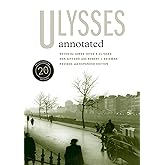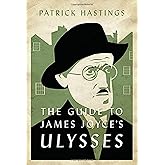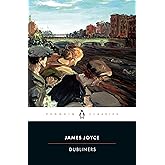
Enjoy fast, free delivery, exclusive deals, and award-winning movies & TV shows with Prime
Try Prime
and start saving today with fast, free delivery
Amazon Prime includes:
Fast, FREE Delivery is available to Prime members. To join, select "Try Amazon Prime and start saving today with Fast, FREE Delivery" below the Add to Cart button.
Amazon Prime members enjoy:- Cardmembers earn 5% Back at Amazon.com with a Prime Credit Card.
- Unlimited Free Two-Day Delivery
- Streaming of thousands of movies and TV shows with limited ads on Prime Video.
- A Kindle book to borrow for free each month - with no due dates
- Listen to over 2 million songs and hundreds of playlists
- Unlimited photo storage with anywhere access
Important: Your credit card will NOT be charged when you start your free trial or if you cancel during the trial period. If you're happy with Amazon Prime, do nothing. At the end of the free trial, your membership will automatically upgrade to a monthly membership.
Buy new:
-32% $18.41$18.41
Ships from: Amazon Sold by: Book-center
Save with Used - Acceptable
$7.73$7.73
Ships from: Amazon Sold by: Shakespeare Book House

Download the free Kindle app and start reading Kindle books instantly on your smartphone, tablet, or computer - no Kindle device required.
Read instantly on your browser with Kindle for Web.
Using your mobile phone camera - scan the code below and download the Kindle app.

The Portable James Joyce Paperback – November 18, 1976
Purchase options and add-ons
- Print length768 pages
- LanguageEnglish
- Publication dateNovember 18, 1976
- Grade level12 and up
- Reading age18 years and up
- Dimensions7.76 x 5.08 x 1.53 inches
- ISBN-109780140150308
- ISBN-13978-0140150308
"All the Little Raindrops: A Novel" by Mia Sheridan for $10.39
The chilling story of the abduction of two teenagers, their escape, and the dark secrets that, years later, bring them back to the scene of the crime. | Learn more
Frequently bought together

Similar items that may deliver to you quickly
Editorial Reviews
About the Author
Harry Levin (1912–1994), literary critic and modernist literature scholar, graduated from Harvard University and began teaching there some years later. In 1960 he became the Irving Babbitt Professor of Comparative Literature at Harvard and retired in 1983.
Product details
- ASIN : 0140150307
- Publisher : Penguin; Reprint edition (November 18, 1976)
- Language : English
- Paperback : 768 pages
- ISBN-10 : 9780140150308
- ISBN-13 : 978-0140150308
- Reading age : 18 years and up
- Grade level : 12 and up
- Item Weight : 1.65 pounds
- Dimensions : 7.76 x 5.08 x 1.53 inches
- Best Sellers Rank: #1,214,356 in Books (See Top 100 in Books)
- #12,648 in Contemporary Literature & Fiction
- #27,508 in Classic Literature & Fiction
- #54,300 in Literary Fiction (Books)
- Customer Reviews:
About the author

James Augustine Aloysius Joyce (2 February 1882 – 13 January 1941) was an Irish novelist and poet. He contributed to the modernist avant-garde and is regarded as one of the most influential and important authors of the 20th century.
Joyce is best known for Ulysses (1922), a landmark work in which the episodes of Homer's Odyssey are paralleled in an array of contrasting literary styles, perhaps most prominent among these the stream of consciousness technique he utilised. Other well-known works are the short-story collection Dubliners (1914), and the novels A Portrait of the Artist as a Young Man (1916) and Finnegans Wake (1939). His other writings include three books of poetry, a play, occasional journalism and his published letters.
Joyce was born in 41 Brighton Square, Rathgar, Dublin—about half a mile from his mother's birthplace in Terenure—into a middle-class family on the way down. A brilliant student, he excelled at the Jesuit schools Clongowes and Belvedere, despite the chaotic family life imposed by his father's alcoholism and unpredictable finances. He went on to attend University College Dublin.
In 1904, in his early twenties, Joyce emigrated permanently to continental Europe with his partner (and later wife) Nora Barnacle. They lived in Trieste, Paris and Zurich. Though most of his adult life was spent abroad, Joyce's fictional universe centres on Dublin, and is populated largely by characters who closely resemble family members, enemies and friends from his time there. Ulysses in particular is set with precision in the streets and alleyways of the city. Shortly after the publication of Ulysses, he elucidated this preoccupation somewhat, saying, "For myself, I always write about Dublin, because if I can get to the heart of Dublin I can get to the heart of all the cities of the world. In the particular is contained the universal."
Bio from from Wikipedia, the free encyclopedia. Photo from Wikimedia Commons, the free media repository.
Customer reviews
- 5 star4 star3 star2 star1 star5 star83%11%6%0%0%83%
- 5 star4 star3 star2 star1 star4 star83%11%6%0%0%11%
- 5 star4 star3 star2 star1 star3 star83%11%6%0%0%6%
- 5 star4 star3 star2 star1 star2 star83%11%6%0%0%0%
- 5 star4 star3 star2 star1 star1 star83%11%6%0%0%0%
Customer Reviews, including Product Star Ratings help customers to learn more about the product and decide whether it is the right product for them.
To calculate the overall star rating and percentage breakdown by star, we don’t use a simple average. Instead, our system considers things like how recent a review is and if the reviewer bought the item on Amazon. It also analyzed reviews to verify trustworthiness.
Learn more how customers reviews work on Amazon-
Top reviews
Top reviews from the United States
There was a problem filtering reviews right now. Please try again later.
Ulysses is the tale of a Modern-day Odysseus, Leopold Bloom in his personal existential/sexual quest. The conclusion of this quest is the quintessential affirmation of humanity, the fundamental family unit - the father, mother, son, and daughter. Like Odysseus, absent from Penelope, traveling the world, for many long years, Leopold Bloom is also absent from his Penelope (in Dublin). Like a traveler (Odysseus), Bloom is sexually absent (abstinent) from Molly “10 years, 5 months and 18 days” (736). Unlike Odysseus, the obstacles Bloom faces are psychological (modern) - internal travails instead of Odysseus' external travails. Bloom's only son’s death has become a psychological barrier; as Molly reflects: “we were never the same since” (778). Yet Bloom is optimistic throughout the work - in regard to the possibility of another child, again Molly: ”Ill give him one more chance” (780). Affirmatively (as we grow to know Molly) we find she has given and is willing to continue to give Bloom “one more chance”. Through the course of the (Dublin) day, Bloom experiences “deep frustration, humiliation, fear, punishment and catharsis” (Herring, p.74). Bloom needs to lead himself back, out of self-deception, fantasy, and frustration to Molly’s (and his marriage) bed.
Bloom’s travails come in the Circe chapter and it is imperative (for Joyce) that as readers, we recognize Joyce’s change from Homer's Odyssey - this is Joyce's major rework, deviating from his Greek predecessor. For Odysseus: insight, understanding, enlightenment, and all importantly direction come to Odysseus in his journey to the (ancient Greek) Underworld. For Bloom, the Hades chapter or “the other world” represents an “emptiness of mind”; Joyce was a man grounded (and devoted) to the present world of man's consciousness and unconsciousness. In Ulysses enlightenment comes in the Circe chapter: described though the Joycean technique of hallucination or the discoveries of the "unconscious mind”. Joyce's Circe chapter (a surrealistic one-act Ibsen-like play) is where Bloom finds self-possession - (Joyce makes) Bloom encounter his own psycho-sexual existential questions, rather than finding life's answers in the dead ghosts of his life (the ancient Greek Hades chapter of the dead past).
In the Circe chapter, Bloom confronts and overcomes every major obstacle in his existential/sexual quest: the Molly he serves in Calypso reappears as Bello the whoremistress, Molly’s letter from Boylan and his from Martha are reworked into a series of seductive letters ending in a trial, his sexual infidelities beginning with Lotty Clarke and ending with Gerty McDowell are relived (importantly balanced by Molly’s infidelities) and reconciled, and lastly, Bloom triumphs over whore, Virgin-Goddess, and most importantly himself. Joyce equanimously gives both Molly and Bloom extramarital sexual infidelities - infidelities known by each of the other (as early as the Calypso chapter) Bloom was conscious of what was to come. Of course there will be resolution in marriage, for Molly only needs to feel that Bloom is willing. As we read, Bloom has undergone the travails of his own mind and has emerged Victorious. He has succeeded in his psycho-sexual existential quest. He has arrived at Molly’s bed. Self-possessed. Victorious. Eager.
Molly "I saw he understood or felt what a woman is and I knew I could always get round him...then he asked me would I yes to say yes my mountain flower and first I put my arms around him yes and drew him down in to me so he could feel my breasts all perfume yes and his heart was going like mad and yes I said yes I will Yes. (END)".
After publishing Ulysses, Joyce began FINNEGANS WAKE (FW) - Joyce largely stepped out of one work into his next (and last work). The change Joyce made in FW was instead of using Homer's Ulysses as a framework - FW's framework is Giambattista Vico's "La Scienza Nuova's" 4 cyclic stages of history.
Joyce realized that he ended Ulysses wrongly (not in accordance with the Universe) in Molly's bed - Joyce corrects his mistake in FINNEGANS WAKE by incorporating Vico's revelation of restart / recirculation."HCE day" similar to Bloomsday (roughly 24 hrs): Chronologically FW starts with memories "book I:3" of HCE arrested in front of his gated refuge (from MaMaLuJo) unable to enter, unlike Bloom HCE does not enter through the back door, instead HCE is arrested in hours before dawn. Then memories "book I:4" HCE's psychological musings of past travails/guilts (living death, underworld excursion Ulysses ch Hades) while incarcerated in early hours of morning. Followed by memories "book I:2" HCE walks home through Phoenix Park accosted for the time of day (12 noon) which threatens (real/unreal memories, Ulysses ch Nausicaa) his innocent well-being. These 3 chapters in FW are Joyce's major rework to incorporate Vico's revelation of restart/recirculation into FW, Joyce rewrites 3 chapters of Ulysses: When He is denied Her front door, He is in Hell (on earth), when released (from Hell) His odyssey to Her begins again (with His ever-present accompanying internal travails) for She always knows when He is worthy of Her acceptance (their Paradise).
Then "book I:1" Finnegan's afternoon wake at HCE's tavern and retelling memories (books I:2-4). Inside HCE's tavern (his ship) his patrons talk about his family (Norwegian Captain and the Tailor's Daughter), truthful letters (ALP) and fabricated stories (books I:5-8 & II:3); while the children (Shaun, Shem and Iseult) are in and out of the family tavern/home all day taking their lessons (book II:2) and playing about with their friends (Shem's closing dream, book II:1); HCE, as proprietor, defends himself with a self-deprecating apologia before his intoxicated collapse late night (book II:3). HCE dreams on his tavern floor (book II:4); then dreams in his bed (books III:1-3); before intercourse with his wife ALP (book III:4). HCE & ALP's lovemaking dissolution dream (book IV) to awaken to a new day, Joycean Nirvana is attained by ALP's (& HCE's) awaiting Joyce's God "thunderclap" at the beginning of FW's "book I".
FW is aural (oral) history like Homer's Odessey and Celtic folktales - when one pronounces (phonology) FW's words (aloud) there are more languages than just English; also, when one reads (morphology) FW's words almost all the words are "portmanteaus / neologisms" which gives each of FW's "poly-syncretic" words many meanings (universal impermanence, Heisenberg uncertainty/obscurity), each FW syncretic sentence dozens of possible messages, each FW syncretic paragraph hundreds of possible readings, Joyce's rendering of a more expansive English language and multiplicating universal book with coalescing syncretic themes/stories (that responds/opens to each reader's inquiries). Joyce schooled in Christian Jesuit metaphysics (pushed down into the mindfulness of human consciousness) breathes in the spirit of expansive Celtic (Irish) democratic community tavern life where man's stories of life are told. Tavern life teaches the evolution of Joyce's ten "thunderclaps" (one hundred lettered words) pushing man's (technologic) evolution forward from cave man's tales to modern tv media tales: Indra's thunder upheavals: 1) Emergent human technologies (wheel, cloth, etc.), 2) Women's social/stratifying clothing (i.e. civilization's divisions), 3) Effeminate clerical social control (Buddha, Lao-Tze, Christ, Toltec seers, etc.), 4) Feudal degradation (cities/urban plight), 5) Writings disseminated (Gutenberg's press), 6) Renaissance (blooming informed culture), 7) Radio (instantaneous information), 8) Film (disseminated culture), 9) Reciprocating Engine (democratized travel), 10) TV (instantaneous global media culture). Inside the tavern man learns of the purely human (animal) fall, taken down by another human(s) - like animal taken down on the African savanna. A granular reading of FW can render FW as an updated John Milton's Paradise Lost (regurgitated knowledge from the tree, to affirm man's damnation); however, Charles Darwin's The Origin of Species was published in 1859 and Joyce in FW book II clearly walks Shaun, Shem and Iseult through their earthly evolutionary lifetime travails, our mortality is a consequence of Life's evolution. Every page of FW speaks to man's (unconscious biological survival, conscious "racing competitive" social, contemplative aspirational personal) evolution and to Life recirculating (West meets Dzogchen East a "meeting of metaphysical minds") that binds humanity together into the future. Dzogchen (beyond all dualistic polarities) the heart of human consciousness - Joyce's underlying (subcutaneous) arguments refute the "Western curse of metaphysical/mythological damnation", the curse does not exist in the Eastern mind. Like "counting the number of angels on the head of a pin" (Aquinas 1270) Joyce provides a granular/expansive reading of FW as a "defense against all Western adversity" for our conscious and unconscious Western travails. HCE's angst is caused by his community that imposes a Western curse (damnation) upon him that man is not guilty of...to experience Joycean Nirvana, a defense against this man-made guilt is required - for as Zoroaster revealed cosmogonic dualism, evil is mixed with good in man's everyday universal travails (even the Dalai Lama must defend Nirvana rigorously from the most populous authoritarian state in human history).
Joyce's FW celebrates the Joys of Christian/Buddhist diversity of humanity (expansive human consciousness: Gnostic Norwegian Captain, Shem, Archdruid), Brahma (Finnegan, HCE, Shaun), Divine Women (ALP, Iseult, Nuvoletta), his family - and the Sufferings of the inescapable "evil" of Shiva (Buckley), the debilitating harmful sterile intrusive authoritarian institutionalizing damnation (MaMaLuJo, St. Patrick) by Augustine, the manufactured clerical corruptions identified by Luther et al. (since 367 AD) and the burdens of "survival of the fittest" anxiety (modern commerce) met with a Dzogchen Buddhist stance. The (innocent infant) Norwegian Captain (Krishna, HCE), occasionally defensive (Shiva, HCE), though concretized (Brahma, HCE) by community family life (MaMaLuJo) - through spirits (drink) HCE accesses his spirituality (dreams) and through spiritual (cutting through) love-making with ALP (direct approach) they access (their Krishnas), unification with the Unmanifest. Joyce was a Prophet who consumed Man's conscious and spiritual "thoughts and dreams, history and gossip, efforts and failings" - to reveal the joys (Nirvana) and sufferings (Samsara) of Mankind.
Joyce's FW message: Christian/Buddhist omniscient compassion (Christ/Krishna) is eternally joyful and recirculating. Affirmative family (HCE/Brahma, ALP/Divine woman & children) existentiality: life's biological evolution (sex), modern survival (money), constraining community (Dharma, social evolution) are constantly assaulted by inescapable "aggressive insidious vile" corrupt soul(less/sucking) ossified demonic antipathetic attacks. Joycean Nirvana is attained via the Christian/Buddhist affirmative middle way, "beyond polar opposites" the path of Christ/Buddha.
JCB










